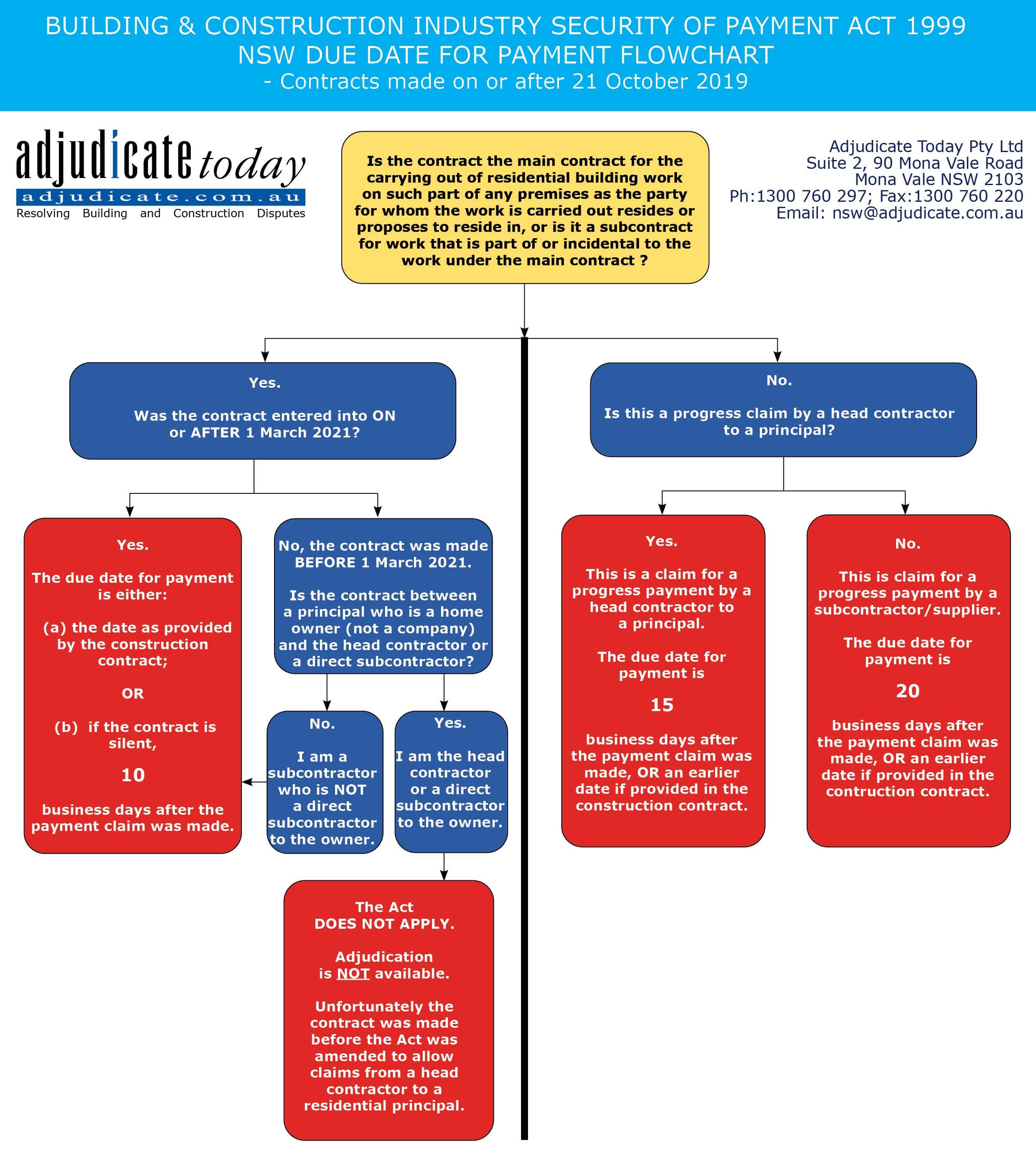
NSW Security of Payment Act: Resolving Confusion Calculating the Due Date for Payment in the Residential Sector
Recent adjudication determinations by Adjudicate Today adjudicators have highlighted different interpretations for calculation of the Due Date for Payment when a subcontractor undertakes residential work for a homeowner (the homeowner) who resides or proposes to reside in the whole of the contracted work.
Chris Harriss wrote an excellent article on the confusion, and published by Lexology on 24 March 2023, titled: ‘Due Dates for Payment on Exempt Residential Construction Contracts’ The annotated article is available at Due Dates for Payment on Exempt residential construction contracts | Adjudicate Today.
In this article, I set out the common circumstance of various payment disputes with the goal of lifting the veil of uncertainty in calculating the due date for payment in the residential sector for those who don’t specialise in construction law. As there is no case law on the circumstances I describe, the views herein expressed are mine following workshopping with several of our senior adjudicators. These views can’t bind future adjudicators nor (I unnecessarily observe) a court.
A claimant performs painting works on a residential home. The respondent has an owner occupier construction contract with the homeowner. The contract was made in 2022 i.e. after extension of the Act to residential payment disputes on and from 1 March 2021. The claimant makes a valid payment claim to which no payment schedule was received within 10 business days. In such circumstances and if wishing to proceed to adjudication, a claimant must issue a section 17(2) notice, also known as the second opportunity notice, within 20 business days from the expiry of the due date for payment.
The confusion is over when the due date for payment expires.
Where the head contractor’s contract is with a homeowner (to quote Chriss Harriss ‘the top of the contracting chain’) and the payment claim is made against the contractor or subcontractor) further down the contracting chain, does the claim fall under either:
- Section 11(1B) of the Act in which case the due date for payment expires after 20 business days (or lesser period if provided by contract); or
- Section 11(1C) of the Act in which case the due date for payment expires after 10 business days (or other period if provided by contract)?
The Catch-22 is for the claimant in electing which period is correct. As the answer lies with the intention of the homeowner and the contract may not make applicable provision or be available to the subcontractor, the answer may not be readily discernible. However, assuming the contract is silent:
- if the claimant elects 10 business days and serves the payment claim on business day 12 when the correct period is 20 business days, the 17(2) notice is served early and consequently invalid.
- If the claimant elects 20 business days and serves the payment claim on business day 22 when the correct period is 10 business days, the 17(2) notice may be served late (depending on the actual due date for payment) and consequently invalid.
Adjudicate Today has revised its flowchart for determining the due date for payment when there is a payment dispute in the residential sector. We consider the key question to be:
‘Is the contract the main contract for the carrying out of residential building work on such part of any premises as the party for whom the work is carried out resides or proposes to reside in, or is it a subcontract for work that is part of or incidental to the work under the main contract?’
We hope the flowchart provides greater clarity to parties in making the correct election. The flowchart represents the view published by Chris Harriss in his Lexology article published 24 March 2023. We can’t guarantee that this view will be upheld by a court but the analysis by several senior adjudicators lends confidence to the accuracy of the flowchart.

The flowchart may be downloaded from NSW | Due Date for Payment under Security of Payment Act (adjudicate.com.au)
Latest Articles


MAJOR AMENDMENTS SLATED FOR VICTORIA’S SOP ACT
October 25, 2024

Will the drafting of the BIF Act kill adjudication in Queensland?
October 21, 2024

IS IT “BACK TO THE FUTURE” FOR QLD ADJUDICATIONS?
February 07, 2024

Victorian Security of Payment Act: Amendment effective 1 February 2024
February 01, 2024

